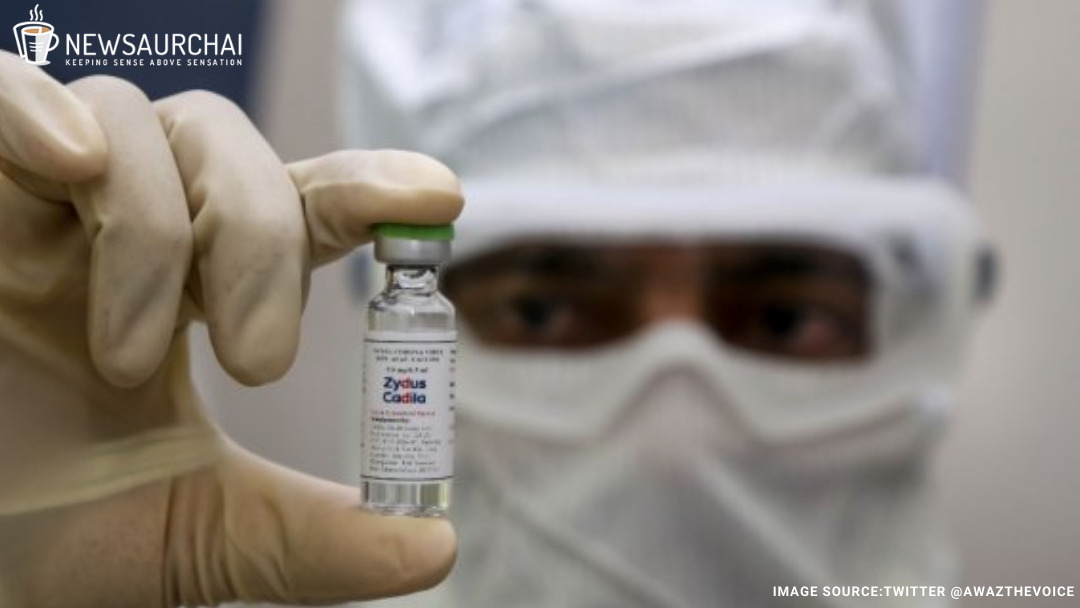
With the Delta Variant setting its wave globally, ZyCoV-D, India’s first Plasmid DNA Covid-19 vaccine, is in the running for an Emergency Use Authorization from the Drug Controller General of India (DCGI). Vaccine maker Zydus Cadila, which already has anti-Covid treatments on the market, claims to have conducted the largest clinical trial in India so far at over 50 centres, with over 28,000 volunteers ranging in age from 12 to 18 years old.
According to the firm, with its 66.6 per cent effectiveness for RT-PCR positive patients in the interim study, ZyCov-D has already demonstrated solid immunogenicity, tolerance, and safety profile. It went on to say that no moderate instances of Covid-19 were seen in the vaccination arm after the third dose was administered, indicating a 100 per cent effectiveness for mild illness.
What is Zydus’ approach?
By mid-August, the business intended to be manufacturing 10 million doses each month, according to managing director Sharvil Patel. “We are currently only focusing our efforts on making sure we can make doses available for India,” Patel said in a virtual news conference. If the injection is approved, it will become the country’s sixth vaccination to be approved for use.
Patel added that data on immunogenicity for the adolescent children subgroup would be submitted in the next four to six weeks.
The pharmaceutical company has also provided data on a two-dose regimen for the injection.
What are DNA vaccines?
ZyCoV-D, if authorized, will be the world’s first DNA vaccine, according to Zydus, since it uses a piece of the SARS-CoV-2 virus’s genetic code – DNA or RNA – to trigger an immune response against the virus’s spike protein.
How are DNA vaccines Different from mRNA vaccines?
In contrast to the viral vector vaccines or inactivated vaccines like Covishield and Covaxin, DNA and RNA vaccines trigger an immune response by using a portion of the virus’s genes.
The distinction between DNA and RNA vaccinations is that the latter is passed on to a different molecule known as messenger RNA. The DNA vaccination also uses a tiny electrical pulse to convey the message to the cell.
DNA and RNA vaccines are less expensive than standard protein vaccinations. They are praised for their efficacy and capacity to be produced more quickly. Because DNA and RNA vaccines rely on genetic code rather than a live virus or bacterium. They may theoretically be made more widely available.
According to research published in the medical journal Frontiers in Immunology in 2019, “preclinical andclinical trials have shown that mRNA vaccines provide a safe and long-lasting immune response inanimal models and humans.”
According to WHO, DNA vaccines have a variety of potential advantages over traditional methods, including activation of both B and T cell responses and improved vaccine durability.
Is ZyCov-D needle-free?
A needle-free injectable method is reported to be used to deliver ZyCoV-D. (NFIS). In most NFISs, a jet of fluid is accelerated to a high enough speed to penetrate the skin through a tiny diameter nozzle. The vaccination may have a greater acceptance rate among youngsters who are afraid of needles, according to Sharvil Patel, managing director of Cadila Healthcare.
The three doses of Zycov-D should be given on days 0, 28, and 56, according to Zydus Cadila. The firm is, however, working on a two-dose vaccination.
According to the company’s information, the vaccine candidate may be stored for a long time at two to eight degrees Celsius and for a brief time at 25 degrees Celsius.
What does the Government have to say about the indemnity of the Vaccine?
The Government is still deliberating whether vaccine makers should be indemnified, as Pfizer and Moderna have asked. While a final decision is still pending, key authorities have stated that there is agreement.





